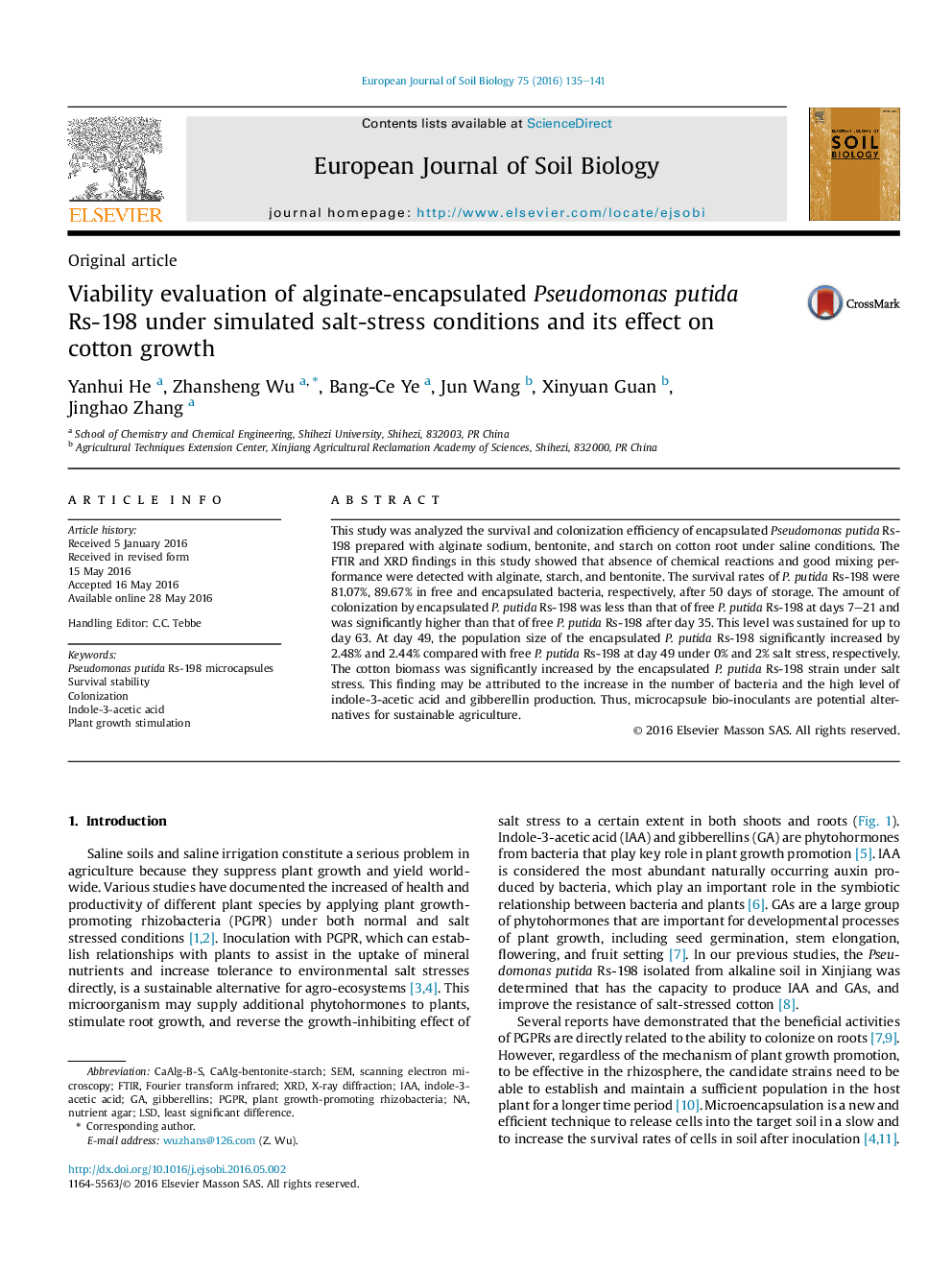| Article ID | Journal | Published Year | Pages | File Type |
|---|---|---|---|---|
| 4391646 | European Journal of Soil Biology | 2016 | 7 Pages |
•Encapsulated NaAlg-B-S Pseudomonas putida Rs-198 have higher survival rate.•Production of IAA and GA was maintained at 30 μg/ml and 180 μg/ml.•Encapsulated NaAlg-B-S P. putida Rs-198 can efficiently colonized on the root.
This study was analyzed the survival and colonization efficiency of encapsulated Pseudomonas putida Rs-198 prepared with alginate sodium, bentonite, and starch on cotton root under saline conditions. The FTIR and XRD findings in this study showed that absence of chemical reactions and good mixing performance were detected with alginate, starch, and bentonite. The survival rates of P. putida Rs-198 were 81.07%, 89.67% in free and encapsulated bacteria, respectively, after 50 days of storage. The amount of colonization by encapsulated P. putida Rs-198 was less than that of free P. putida Rs-198 at days 7–21 and was significantly higher than that of free P. putida Rs-198 after day 35. This level was sustained for up to day 63. At day 49, the population size of the encapsulated P. putida Rs-198 significantly increased by 2.48% and 2.44% compared with free P. putida Rs-198 at day 49 under 0% and 2% salt stress, respectively. The cotton biomass was significantly increased by the encapsulated P. putida Rs-198 strain under salt stress. This finding may be attributed to the increase in the number of bacteria and the high level of indole-3-acetic acid and gibberellin production. Thus, microcapsule bio-inoculants are potential alternatives for sustainable agriculture.
